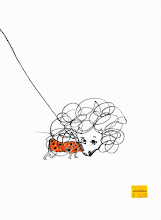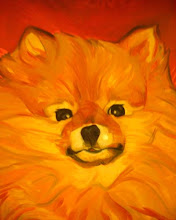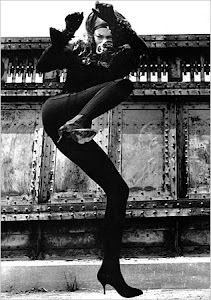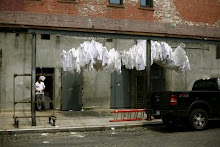NYT's Michiko Kakutani calls What is the What by Dave Eggers "a startling act of literary ventriloquism" and this sums it up with typical brilliance. It is a wodge of incredible writing and better reporting on a point in one country's history when the unimaginable was everyday.
I am as yet just half way through this fine book (fie on Eggers for calling an inferior example "a heartbreaking work of staggering genius", I hope he regrets that), and our hero Valentino Achak Deng has just buried his childhood friend, a boy with whom he shared a crib, a village in Sudan, history. William K walked beside him on the trek to Ethiopia (what madness, frying pan to fire, or dirt desert to ... dirt desert) and on this day, William K simply sat down beside a tree, closed his eyes, and died. Others died more magnificently or certainly with more violence; this was a startling death for Achak in that it was so gentle a slipping away. And profound. "I could not remember more than a handful of those days that we had not been together, that I had not run with William K. We wre simply friends who lived in a village together and expected to always be boys and friends in our village." It does not seem to be an unreasonable expectation, certainly not an extravagant one.
Yet William K walked until all energy and life ebbed away. He did not reach the next place, neither Ethiopia nor adulthood. William K, we know, was a fabulist, he invented a rich and wonderful Ethiopia where the Sudanese were well-fed, could drink all the cool water a body could want, had power. His Ethiopia was magnificent. Maybe he had to die before he could die of disappointment.
I wonder what it takes to survive, why one body does and another doesn't. These two boys were born together and stood side by side, yet one died and one did not. Victor Frankl thought it was attitude, in a way, that saved some from death in concentration camps. William K had a very positive one, and so his death is all the more worrying....if hope, that magic element, doesn't help, my god think of the consequences.
As Achak says, "It was a broken world...that would allow a boy such as me to bury a boy such as William K."
Subscribe to:
Post Comments (Atom)












3 comments:
I just finished a wonderful book called the Three Day Road by Joseph Boyden where he too chronicles the life of two friends who shared a crib together. This time the characters are Cree Indians who volunteer to fight in the trenches of WWI (story is based on a real life Ojibwa hero). Like the characters in What is the What, this book tells a tale of brutality, survival and rebirth where one 'brother' dies and the other lives. A sad and fascinating tale.
you know what is incredible? I for one had no idea Crees fought in the war. I cannot imagine WHY an aboriginal person would feel he must defend this country when the country has treated aboriginals so poorly (my view anyway). I'd love to read this book, thank you! tn
One possible explanation for a Cree or any the first nation tribes electing to join the fight (other than conscription) is that rather than doing it out of a sense of duty for the government, they were serving a higher calling.
On a spiritual level the Indian peoples historically do not adhere to or believe in the European custom of land ownership. It is anathema to them. Long before Europeans appeared on their horizon they saw themselves as custodians of the land, taking care of it for God and the next generation. Their religion teaches that is is God's land alone. They are there to care for it. The concepts of possession and materialism are foreign to them. An Eastern philosophy in a Western land.
They only took what they needed, never more. You will note that there was never a shortage of buffalo when they were running the show.
While wars are political creations, it is not inconceivable that a Cree in that time feeling a threat to the land, if not the country, would join the cause with a higher calling in mind. Just a theory.
Post a Comment